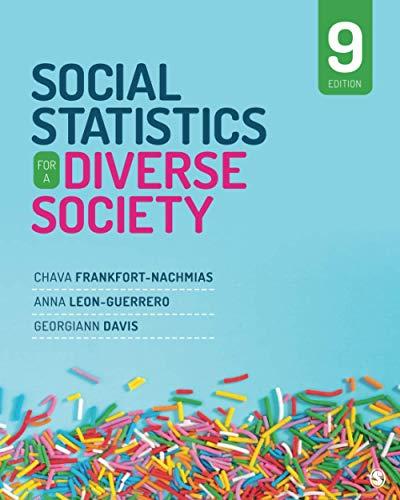The implications of research findings are not created equal. For example, researchers might hypothesize that eating spinach
Question:
The implications of research findings are not created equal. For example, researchers might hypothesize that eating spinach increases the strength of weightlifters. Little harm will be done if the null hypothesis that eating spinach has no effect on the strength of weightlifters is rejected in error. The researchers would most likely be willing to risk a high probability of a Type I error, and all weightlifters would eat spinach. However, when the implications of research have important consequences (funding of social programs or medical testing), the balancing act between Type I and Type II errors becomes more important. Can you think of some examples where researchers would want to minimize Type I errors? When might they want to minimize Type II errors?
Step by Step Answer:

Social Statistics For A Diverse Society
ISBN: 9781544339733
9th Edition
Authors: Chava Frankfort Nachmias, Anna Y Leon Guerrero, Georgiann Davis






